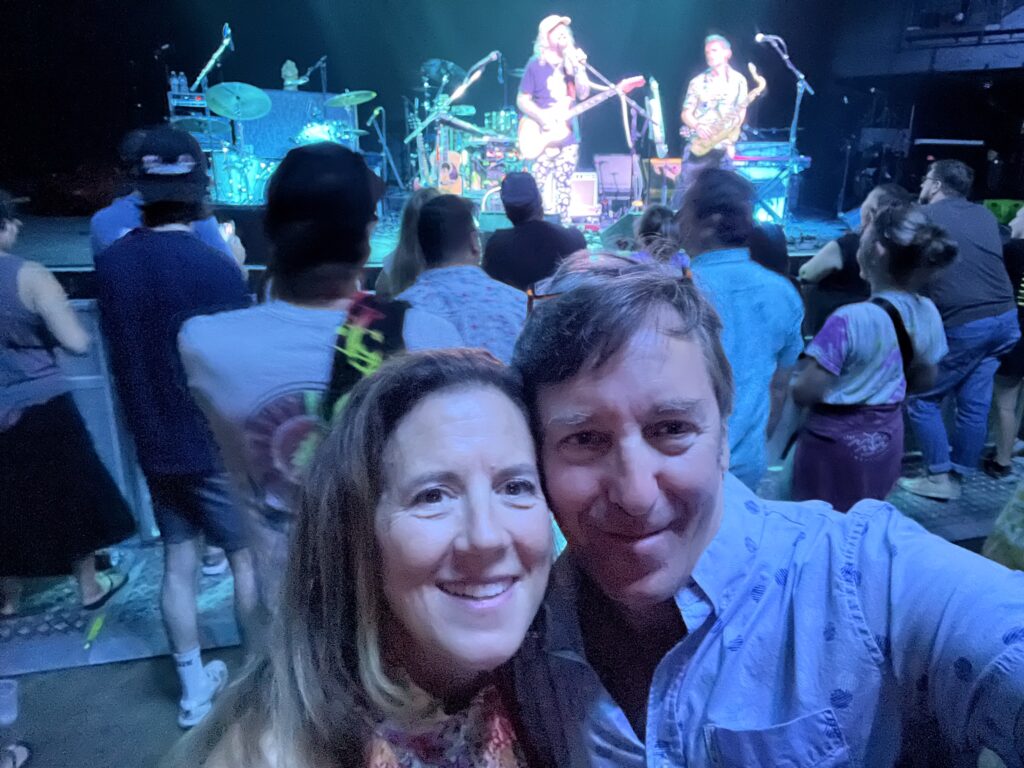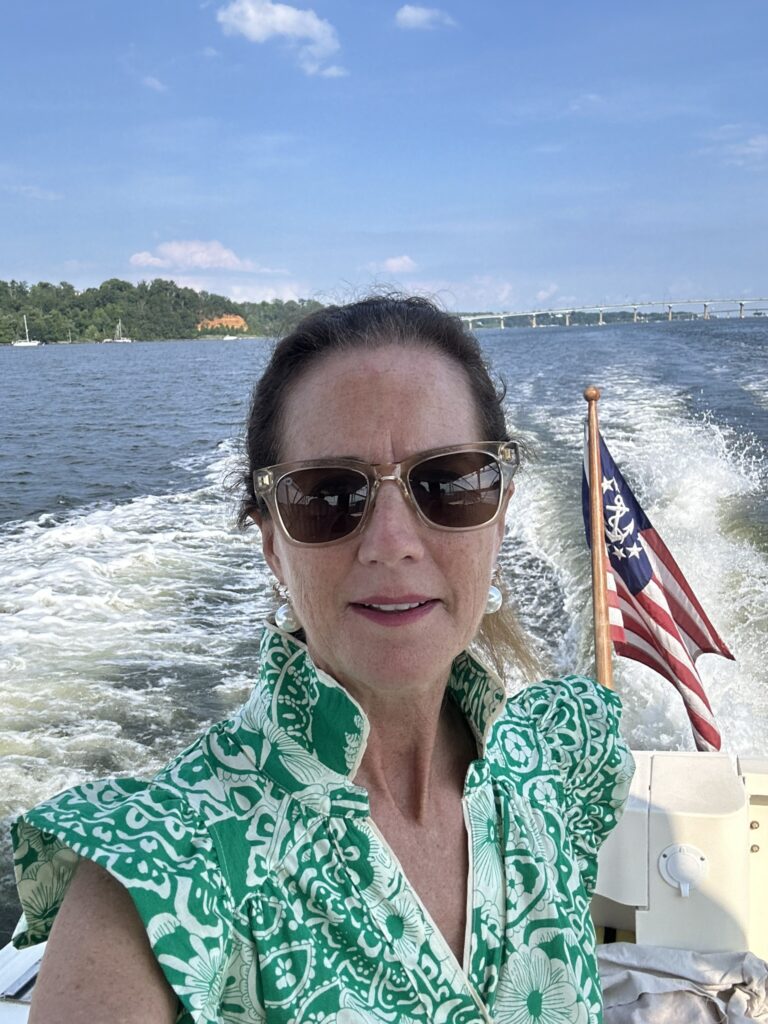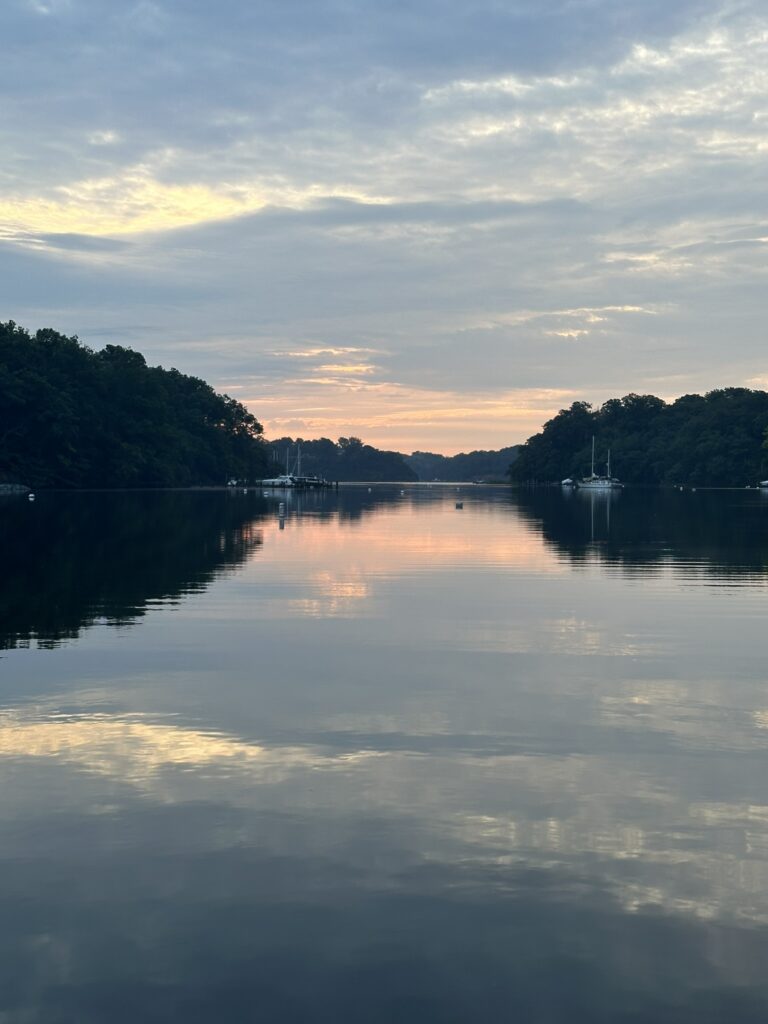It’s simpler (and more fun!) than you think.
Last weekend, I had a powerfully restorative weekend. As the weekend was wrapping up, I was amazed at how relaxed, recharged and refreshed I felt. So, being me, I reflected on how I got there.
My “weekend” started on Thursday. Due to the weather, I worked the weekend before so I could take Thursday and Friday and work on our boat. I spent the two days, mostly by myself, replacing pumps in the bilge, fixing some other things, and cleaning. It’s not the most glamorous work. I came out with bruises all over my arms, two working pumps, and lots of time to be with myself.
Friday, night, we went to a concert with a group of friends.

Saturday, we headed off on our boat for an overnight across the Chesapeake in St. Michaels. We ran into friends, met new people, had a lovely dinner, a moonlit walk, a morning cruise on our bikes, and some window shopping enjoying cool art, furniture, and fashion.
We motored back on Sunday in time for me to read at our church’s evening contemplative service, and then I caught up with a friend for dinner.

What, in all of this, worked?
Solitude, by choice, is a powerful restorative, advocated by leaders for millenia.
- “I never found the companion that was so companionable as solitude.” Henry David Thoreau, Walden
- “Apply yourself to solitude. One who does so will see things as they are” Buddha S.
- “All of humanity’s problems stem from man’s inability to sit quietly in a room alone.” Blaise Pascal
- “Come away to a deserted place all by yourselves and rest a while.” Jesus in the Gospel of Mark
- “All true wisdom is to be found far from the dwellings of me, in the great solitudes.” Inuit

In our busy contemporary lives, solitude is even more valuable. The time I spent alone on the boat was a huge change from the two weeks before. I was unplugged from news and only checked emails and text messages just before 5:00. I was so unplugged I didn’t even know there was a global technical issue!
Working with your hands has multiple benefits.
- When you work on a task that doesn’t demand much brain power it gives our brain a chance to rest and relax.
- Our brains can work on problems subconsciously.
- There is also something deeply rooted in our genetic makeup that is satisfied when we work with our hands.
- Using our hands can help maintain a positive mood, staving off irritability, apathy, and depression.
Creativity reduces stress hormone levels.
Problem-solving how to replace the pumps and fix other things is a creative outlet for me. Listening to music, and appreciating the art, gardens, and architecture of St. Michaels all helped to reduce cortisol levels.
Accomplishment contributes to well-being.
Successfully installing the pumps, fixing the other things, and even docking in tight quarters all gave me a sense of achievement, mastery and competence. Looking at your life with a sense of pride is a powerful component of flourishing.
Social connection, like working with our hands, is a human need.
Social connection has been proven to help physical and mental health and improve longevity.
Empathy increases our feelings of social connection.
Celebrating friends’ accomplishments, talking about their professional concerns, and cheering them on helps us create deeper connections, further strengthening the benefits of social connections.
Spending time outside
95% of people interviewed said their mood improved after spending time outside. Being close to nature can reduce anxiety and depression, leaving people calmer and more balanced.

I should have known all this – my first job after college was teaching Outward Bound. This was a powerful reminder of the impact of this potent mix.
How can you as a leader reap the same benefits?
- Give yourself permission to take vacations.
- Enjoy your weekends and consciously create time for what feeds you.
Leaders I know are spending two contiguous weeks on vacation, hiking, wakeboarding, fishing, kayaking, and skiing on weekday mornings before work, and training for century bike rides, ski racing, sailboat racing, car racing and more.
How can you as a leader create a culture that supports this?
- Role model the desired behavior.
- Encourage your people to take vacations.
- Leverage experiential offsite events for leadership development, strategy sessions, launches, team building, and more.
At Oyster Insight, we can help your organization create a culture that nurtures the whole person, creating not just employee loyalty but also more creative, resilient, and empowered teams. We can also help you create dynamic and impactful experiential offsite events (on or off boats!). Give us a call.



